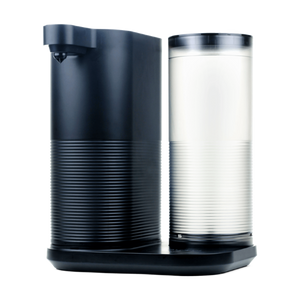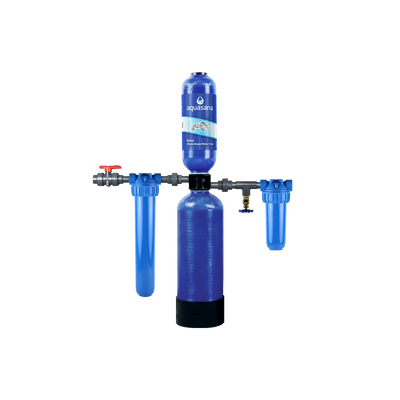Artesian spring water vs. spring water
Artesian water may also be known as artesian spring water, though it’s important to note that the term “spring water” on its own is something entirely different. Artesian water can be from a well or spring, but the defining characteristic of artesian water is that it’s always under pressure which allows it to reach the surface naturally without the use of a pump.
Spring water refers to groundwater that has made it to the surface, which can come naturally from pressure or through the use of a pump. So spring water can be artesian or non-artesian, which means you should read bottles carefully to make sure you’re getting what you actually want.
What are the supposed benefits of artesian spring water?
Artesian spring water is of interest to your neighborhood hipster because companies that sell artesian bottled water claim that because the water travels at a high pressure through a porous surface, it’s naturally filtered. Furthermore, artesian water companies say that this process is nature’s way of purifying the water while also providing some beneficial minerals from the soil that can give it a distinct taste.
It’s important to note, though, that similar to other water brands derived — at least on paper — from a natural geological source, artesian well water does not differ much from most regular well water.
Florida and Georgia are great examples of how artesian well water might not be safe to drink. The National Resources Defense Council says these states have some of the least-safe drinking water in the U.S. Based on population, Texas had the most violations in the U.S., followed by Florida, Pennsylvania, New Jersey and Georgia. Moreover, the 2017 report found nearly 80,000 violations impacting drinking water systems in every state.

Artesian water still runs the same risk of exposure to many contaminants found in all spring water, well water, tap water, and bottled water sources. Of these sources, tap water may actually be the most safe because it’s heavily regulated, tested, and treated by the government. By comparison, well water testing is the responsibility of the homeowner and bottled water companies (including those who offer spring and artesian water) aren’t required to disclose where the water came from, how it was treated, and what contaminants it contains.
Enjoy healthy water that's backed by science
Science suggests artesian water is no healthier than regular tap or well water despite bottled water brand claims.
To ensure your water is actually being filtered by a scientifically-backed method, consider installing one of our many water filtration systems which are tested and certified to remove harmful contaminants, all while retaining beneficial minerals.
Our Whole House Water Filters enable you to get clean, filtered water from every faucet — but you can also check out our Under Sink or Countertop filtration options to find a solution catered to your unique needs.
COUNTERTOP WATER FILTER
Clean Water Machine
Claryum® technology filters 78 contaminants including lead and PFAS at the push of a button. No installation.



